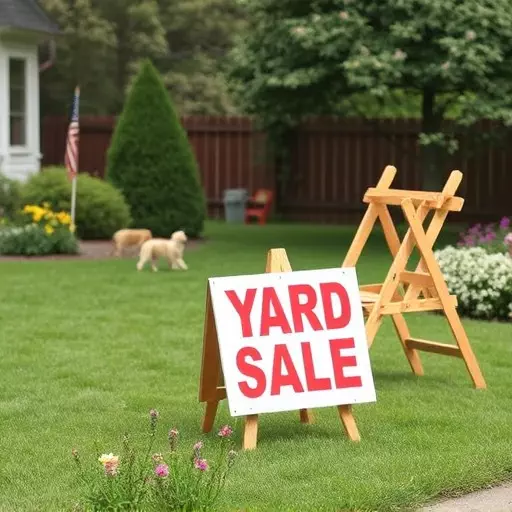Organic recycling through yard waste removal and recycling is a key practice for environmentally conscious homeowners. By separating organic materials like fruit peels, coffee grounds, grass clippings, and leaves from other trash, they reduce their environmental impact. This process minimizes landfill waste, cuts down on methane emissions, and creates nutrient-rich compost that enhances garden soil fertility. Homeowners can follow simple steps like proper separation, composting, and using reusable containers to adopt this eco-friendly practice, contributing to a sustainable home and community.
“Welcome to a greener home revolution! In today’s eco-conscious era, adopting organic recycling practices is not just a trend but a responsible step towards sustainable living. This comprehensive guide explores the art of transforming your home into an eco-friendly haven through organic recycling. From understanding the basics to advanced techniques like yard waste removal and composting, we’ll navigate you through every step. Discover how simple changes can significantly impact your environmental footprint. Let’s dive in and explore the rewarding world of green living.”
- Understanding Organic Recycling: The Basics for Eco-Friendly Homes
- Yard Waste Removal: A Sustainable Approach for Homeowners
- Composting 101: Transforming Kitchen Scraps into Wealthy Soil Amends
- Garden Green: Efficient Ways to Recycle Organic Materials from Your Yard
- The Environmental Impact of Organic Recycling in Residential Settings
- Tips and Tricks for Success: Implementing an Effective Organic Recycling System at Home
Understanding Organic Recycling: The Basics for Eco-Friendly Homes

Organic recycling is a fundamental practice for eco-friendly homes, focusing on transforming waste into valuable resources that benefit both your home and the environment. It involves the decomposition of organic materials such as food scraps, garden waste, and even certain types of paper products. This process creates nutrient-rich compost, which can be used to enhance soil fertility and support healthy plant growth in your garden. By understanding the basics of organic recycling, homeowners can effectively manage their yard waste removal while reducing their environmental footprint.
Implementing organic recycling practices at home starts with separating suitable materials from other trash. Common items that can be recycled include fruit and vegetable peels, coffee grounds, grass clippings, and leaves. These should be collected in a dedicated container and regularly added to your compost pile or bin. It’s important to maintain a balance of green (nitrogen-rich) and brown (carbon-rich) materials for optimal decomposition. Properly managed, organic recycling reduces the amount of waste sent to landfills, minimizes methane emissions, and promotes a more sustainable lifestyle in eco-conscious homes.
Yard Waste Removal: A Sustainable Approach for Homeowners

In today’s eco-conscious world, homeowners are continually seeking sustainable solutions for their homes, and yard waste removal is no exception. Organic recycling offers a simple yet powerful way to reduce environmental impact. By implementing proper yard waste management, homeowners can divert significant amounts of organic material from landfills, where it often decomposes and releases greenhouse gases. Instead, this recyclable material can be transformed into nutrient-rich compost, enhancing soil health and fostering a greener, more sustainable garden.
For many, the process starts with separating organic materials like grass clippings, leaves, and food scraps from other waste streams. Dedicated composting bins or piles can be established in yards to collect these recyclables. Local municipalities often provide resources and guidelines for effective yard waste removal and recycling, ensuring that organic material is processed efficiently, contributing to a cleaner, more eco-friendly environment.
Composting 101: Transforming Kitchen Scraps into Wealthy Soil Amends

Composting is an easy and effective way to reduce yard waste removal and recycling efforts at home. It’s a natural process that transforms kitchen scraps and garden waste into nutrient-rich soil amendments, benefiting both your garden and the environment. By starting a compost pile or using a bin, you can recycle organic materials like fruit and vegetable peels, coffee grounds, eggshells, and even grass clippings and leaf debris.
This simple practice not only diverts potentially valuable organic matter from landfills but also provides a free source of fertility for your home garden. The resulting compost improves soil structure, adds essential nutrients, and promotes healthy plant growth. It’s a great way to embrace eco-friendly practices and create a harmonious relationship with nature, ensuring your gardening habits contribute to a greener, more sustainable future.
Garden Green: Efficient Ways to Recycle Organic Materials from Your Yard

Transforming your garden waste into valuable resources is an eco-friendly practice that contributes to a sustainable home. Organic recycling, specifically for yard materials, involves a simple yet effective process. Start by separating grass clippings, leaves, and small twigs from larger branches or non-biodegradable items. These organic compounds can be composted, creating nutrient-rich soil amendments for your garden.
Implementing on-site composting through bin systems or pile methods not only reduces yard waste but also minimizes the carbon footprint associated with traditional yard waste removal and recycling processes. This approach encourages a circular economy within your home’s ecosystem, fostering a greener and more sustainable lifestyle.
The Environmental Impact of Organic Recycling in Residential Settings

Organic recycling, especially yard waste removal and recycling, plays a pivotal role in shaping the environmental sustainability of homes. By integrating this practice, residents contribute to reducing landfill waste and mitigating greenhouse gas emissions. When organic matter from gardens and kitchens is composted, it creates nutrient-rich soil amendments that can enhance local ecosystems and support healthier plants. This natural process not only minimizes the carbon footprint associated with traditional yard waste management but also fosters a more closed-loop approach to home sustainability.
In residential settings, effective yard waste removal and recycling programs encourage responsible consumer choices, such as reducing food waste and using reusable containers. This collective effort leads to significant environmental benefits, including water conservation, since less organic matter ends up in landfills where it produces methane, a potent greenhouse gas. As a result, adopting organic recycling practices is a powerful step towards creating eco-friendly homes that coexist harmoniously with nature.
Tips and Tricks for Success: Implementing an Effective Organic Recycling System at Home

Implementing an organic recycling system at home is a rewarding way to reduce waste and contribute to a greener environment, especially when it comes to yard waste removal and recycling. Start by separating your organic materials—including food scraps, garden trimmings, and leaves—from other recyclables and trash. Create designated areas for collection, ensuring they are easily accessible yet out of the way to minimize disruption. Regularly collect and compost these items using a bin or pile, maintaining proper moisture levels for ideal decomposition.
Incorporate kitchen and gardening habits that support this system. For instance, use reusable containers instead of single-use plastic bags for fruit and vegetable scraps. Encourage the use of organic, locally sourced materials for gardening to reduce packaging waste. Additionally, consider composting not just yard waste but also food scraps, providing rich, natural fertilizer for your garden. By adopting these tips, you’ll be well on your way to an effective organic recycling routine at home.
Organic recycling is a powerful tool for homeowners seeking to create eco-friendly homes. By understanding the basics, implementing sustainable practices like yard waste removal, and mastering techniques such as composting, residents can significantly reduce their environmental impact. Efficiently recycling organic materials from yards and kitchens not only enriches soil but also contributes to a greener, more sustainable future. With the right tips and tricks, adopting an effective organic recycling system at home is accessible and rewarding. Embrace these practices to become an eco-conscious homeowner and lead by example in your community.


